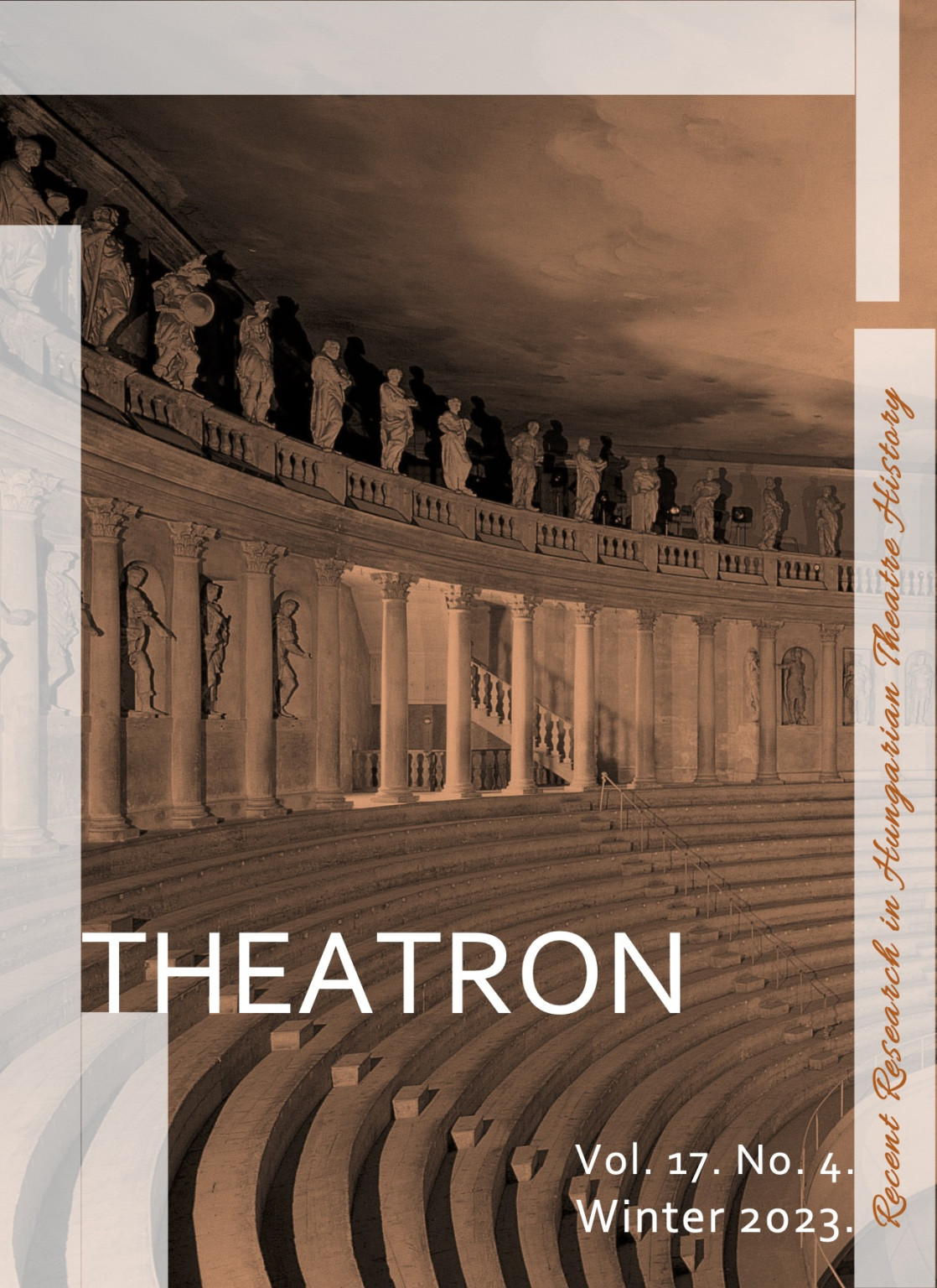Smelter Workers in Bourgeois Overcoats
Smelter Workers in Bourgeois Overcoats
A Case Study on the Sovietization of Hungarian Drama
Author(s): Balázs LeposaSubject(s): Theatre, Dance, Performing Arts
Published by: Theatron Műhely Alapítvány
Keywords: Cold War theatre; production-related plays; Sovietization; Hungarian theatre; Communism
Summary/Abstract: The performance of Hétköznapok hősei (Everyday Heroes) at the Belvárosi (Downtown) Theatre, Budapest, was celebrated by contemporary critics as the birth of the new Hungarian schematic (industrial and production-related) drama and theatre. Éva Mándi’s text lived on as a schema of schematic drama and presented a paradigm in the relatively short time span of four years that conceived of socialist realism along Zhdanovist principles. However, the Hungarian schematic drama followed the topoi of well-made plays both in story-building and character formation, and its heroes became genres. During the course of the reinterpretation of the bourgeois sujet, the happy marriage of the outcome was replaced by the right path of the wavering and the increase in production. The bourgeois home became a factory, and Manfréd Weiss of Csepel conjured up a foundry on the downtown stage, directed by Zsuzsa Simon. The performance flashed the possibility of Sovietized drama in the autumn of 1949, four years after the Soviet liberation of Budapest and just a few months after the nationalisation of Hungarian theatres. This case study tries to present the reconstruction and analysis of the performance from the perspective of 70 years.
Journal: Theatron színháztudományi periodika
- Issue Year: 17/2023
- Issue No: 4
- Page Range: 31-39
- Page Count: 9
- Language: English

